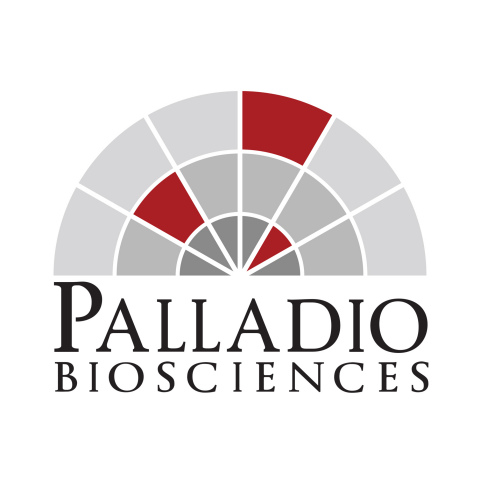Palladio Biosciences Announces Presentation of Data from a Study of Lixivaptan Use in an ADPKD Patient who Previously Experienced Liver Toxicity with Tolvaptan During the American Society of Nephrology Kidney Week 2020 Meeting
Palladio Biosciences Announces Presentation of Data from a Study of Lixivaptan Use in an ADPKD Patient who Previously Experienced Liver Toxicity with Tolvaptan During the American Society of Nephrology Kidney Week 2020 Meeting
HORSHAM, Pa.--(BUSINESS WIRE)--Palladio Biosciences, Inc. (Palladio), a privately-owned, clinical stage biopharmaceutical company developing medicines for orphan diseases of the kidney, announced today the results of a study that investigated the use of lixivaptan in a patient with autosomal dominant polycystic kidney disease (ADPKD) who could not tolerate a different vasopressin V2 receptor antagonist, tolvaptan. The presentation will be made as an ePoster during the American Society of Nephrology’s Kidney Week 2020. The conference is being held as a fully digital meeting, October 22-25.
The presentation will include the results of more than 12 months of safe treatment with lixivaptan in this study, which was conducted as an expanded access clinical study under an IND. The patient was experiencing significant quality of life issues due to her ADPKD, which had initially improved with tolvaptan treatment. Unfortunately, she developed clinically-meaningful alanine aminotransferase (ALT) elevations, a sign of liver toxicity, on each of three sequential treatment attempts with tolvaptan. This provided the basis to initiate lixivaptan treatment instead.
“The patient has not experienced any elevations of ALT or other chemistry tests during treatment with lixivaptan. These results, plus other clinical data we will present during the conference, highlight the liver safety profile of lixivaptan in patients at high risk for developing liver toxicity,” said Dr Neil H Shusterman, Chief Medical Officer of Palladio. “To further study this potential, we are currently enrolling patients in a larger study (PA-ADPKD-303: The ALERT Study in which ADPKD patients who previously discontinued tolvaptan because of liver chemistry elevations will be treated with lixivaptan.”
Details for the poster abstract are listed below. The ePoster can be viewed on-demand starting October 22 at 10:00 a.m. EDT. Digital conference features include an interactive interface and specific communication tools available through Kidney Week registration and login. These tools include a discussion board for each ePoster presentation for Kidney Week participants to engage in a Q&A session with presenters. The presentation can be accessed online on the conference website with the associated hyperlink.
-
Use of Lixivaptan in a Patient with Autosomal Dominant Polycystic Kidney Disease (ADPKD) Who Previously Experienced Liver Toxicity with Tolvaptan
Poster Number: PO1545
Presentation date/time: Thursday, October 22, 10:00 a.m. EDT
About Palladio Biosciences, Inc.
Palladio Biosciences is a privately-held, clinical stage biopharmaceutical company developing medicines for orphan diseases of the kidney. Palladio is developing its lead drug, lixivaptan, for autosomal dominant polycystic kidney disease (ADPKD), an orphan kidney disease for which there are limited treatment options. Lixivaptan is a potent, selective vasopressin V2 receptor antagonist, a mechanism of action that has clinical proof of concept to slow kidney function decline in adults at risk of rapidly progressing ADPKD. Lixivaptan is for investigational use only. For more information, please visit Palladio Biosciences.
Polycystic Kidney Disease (PKD) Key Facts and Figures
PKD is an inherited genetic disease that affects up to 600,000 people in the United States and millions globally. It is estimated that approximately 140,000 people in the United States have been diagnosed with ADPKD, the most common type of PKD. A person with ADPKD has a 50 percent chance of passing the disease on to each of his or her children. The disease is characterized by uncontrolled growth of fluid-filled cysts in the kidney, which can each grow to be as large as a football. Symptoms often include kidney infections and pain. The continued enlargement of cysts and replacement of normal kidney tissue causes irreversible loss of renal function. Every year there are approximately 2,500 new PKD patients in the United States who require dialysis or a kidney transplant, making PKD the fourth leading cause of kidney failure. There is no cure for PKD.
Contacts
Linda Hogan
Palladio Biosciences, Inc.
908-294-8728
lhogan@palladiobio.com
